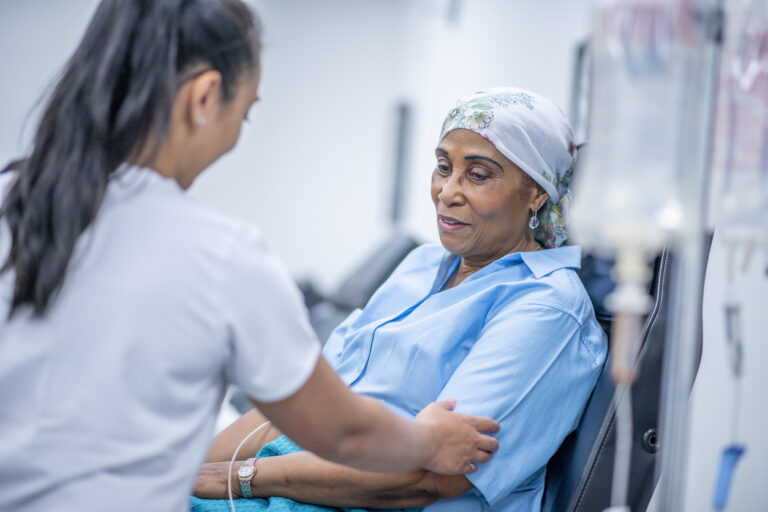by TIM SMITH
We may be isolated in the Atlantic, but Bermuda is still able to provide first-class cancer treatment thanks to outside-the-box thinking and carefully nurtured relationships with overseas providers.
Before coming to Bermuda, radiation oncologist Dr Chris Fosker worked at the largest purpose-built cancer centre in Europe: St James’s Institute of Oncology in Leeds, Britain.
“We had 65 oncologists. If one goes off sick, you have got another 64,” Dr Fosker recalled.
“On this island, we initially only had one radiation oncologist, although we’ve now got two. You have to think very differently. This is the hardest place I have worked in the world because of the isolation.”
One problem with a lower number of specialists is the lack of “corridor conversations” between experts.
Bermuda Cancer and Health Centre moved to plug that gap by forming a partnership with Dana Farber/ Brigham and Women’s Cancer Centre in Boston about six years ago.
“In Bermuda, you are often the only person specialised to deal with it. You have to make those decisions yourself, unless you build a network,” Dr Fosker said.
“A lot of the expertise is on making the decision. It’s different from surgery. With cancer, we have lots of team meetings where we discuss all our cases. They have 20-plus oncologists at Brigham. We are bringing that expertise to Bermuda.”
One of the biggest improvements in Bermuda cancer treatment in recent years was the opening of the Radiation Therapy Unit at BCHC in 2017 – one of the key achievements of Dr Fosker’s time as medical director.
Previously, up to 100 residents travelled overseas for radiation treatment annually, but now the unit treats twice that many patients every year.
It has removed the cost barrier for patients with HIP, FutureCare or no insurance at all, and saved the public more than $35 million in travel and hotel expenses while they undergo treatment that can take several weeks.
“Bermuda is the smallest country in the world to have radiation,” Dr Fosker said.
“Patients give us really positive feedback. They are very reassured when they hear about how we use this model of care and how closely we are integrated with overseas providers.”
Surveys have shown 97 per cent of patients would recommend treatment in Bermuda rather than overseas.
But while the radiation treatment facility has been a great success, it is not always possible to bring state-of-the-art equipment to the island.
“Lots of patients with cancer need a PET scan, but Bermuda can’t afford a PET scanner,” Dr Fosker said.
On top of the costs of buying a PET scanner, maintaining it would also require the storage of radioactive material that cannot be produced in Bermuda.
“We have to build relationships with people overseas to make sure our patients can get access to it when they need it,” Dr Fosker said.
Maintaining quality staffing levels is another challenge of providing healthcare on an isolated island is maintaining staffing levels.
“It’s really hard to build up resources here because the workforce is tiny and therefore if one person moves on, or retires, we lose a huge service. And it’s very hard to recruit,” Dr Fosker said.
Yet Bermuda’s location and size is not all bad news.
Doctors are able to provide the personalised care that patients appreciate, and collecting meaningful data is easier in a controlled, small island.
“It’s unique here!” Dr Fosker said.
“Yes, there are challenges in a lot of areas of care, particularly cancer care, but we do a very, very good job.”

